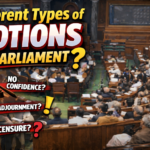Article 223: Appointment of Judges and related provisions Explained

The President of India in exercise of the powers conferred by Article 223 of the Constitution of India, appointed Shri Justice Rajesh Bindal, senior-most Judge of Calcutta High Court, to perform the duties of the office of the Chief Justice of that High Court with effect from 29th April, 2021 following the retirement of Shri Justice Thottathil Bhaskaran Nair Radhakrishnan, Chief Justice, Calcutta High Court.
LEARNING FROM HOME/ WITHOUT CLASSES/ BASICS
The original Constitution of 1950 envisaged a Supreme Court with a Chief Justice and 7 puisne Judges – leaving it to Parliament to increase this number. The Supreme Court of India comprises the Chief Justice and 30 other Judges appointed by the President of India. Supreme Court Judges retire upon attaining the age of 65 years.(Art 124)
In order to be appointed as a Judge of the Supreme Court, a person must be a citizen of India and must have been, for at least five years, a Judge of a High Court or of two or more such Courts in succession, or an Advocate of a High Court or of two or more such Courts in succession for at least 10 years or he must be, in the opinion of the President, a distinguished jurist.(Art 124)
Provisions exist for the appointment of a Judge of a High Court as an Ad-hoc Judge of the Supreme Court(Art127)) and Chief Justice of India at any time, with the previous consent of the President request for retired Judges of the Supreme Court or High Courts to sit and act as Judges of that Court.(Art128)
Similarly, under Article 224A, even retired high court judges can be appointed as ad-hoc judges to HCs.(15th Amendment)
Article 223
“Appointment of acting Chief Justice”
When the office of Chief Justice of High Court is vacant or when any such Chief Justice is, by reason of absence or otherwise, unable to perform the duties of his office, the duties of the office shall be performed by such one of the other Judges of the Court as the President may appoint for the purposes.
A Judge of the Supreme Court cannot be removed from office except by an order of the President passed after an address in each House of Parliament supported by a majority of the total membership of that House and by a majority of not less than two-thirds of members present and voting, and presented to the President in the same Session for such removal on the ground of proved misbehaviour or incapacity.(Art 124(4))
A person who has been a Judge of the Supreme Court is debarred from practising in any court of law or before any other authority in India.




0 Comments